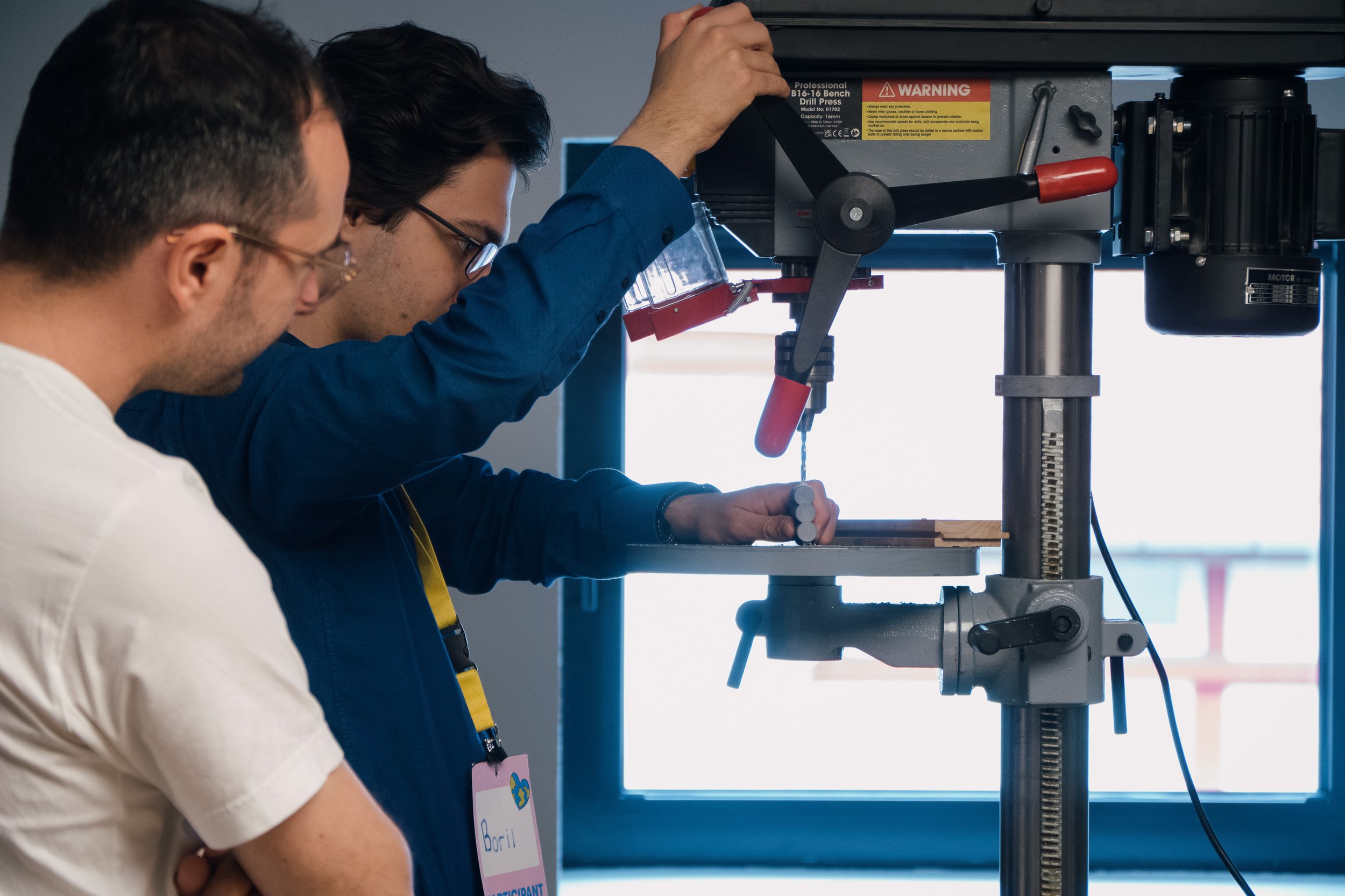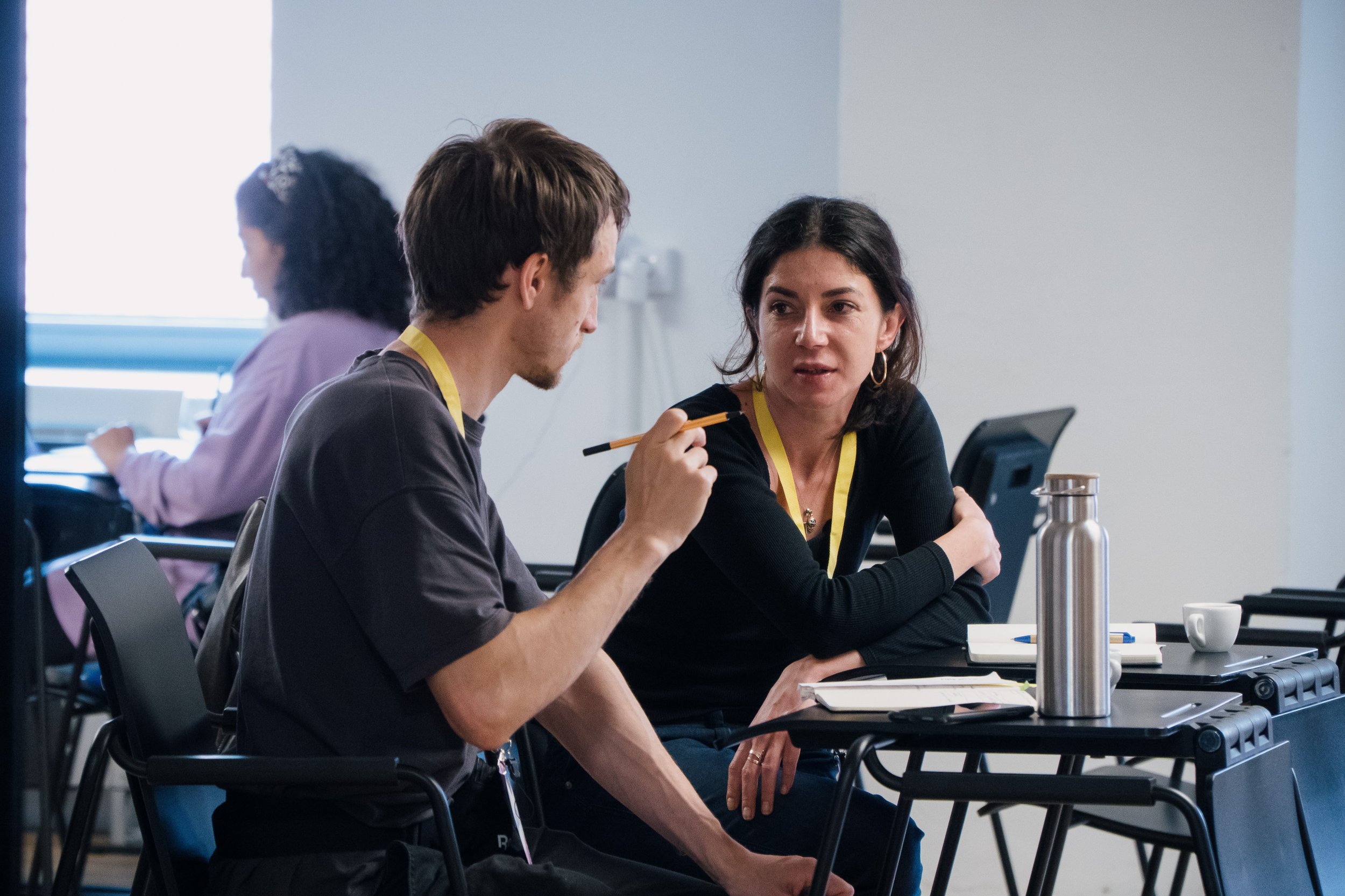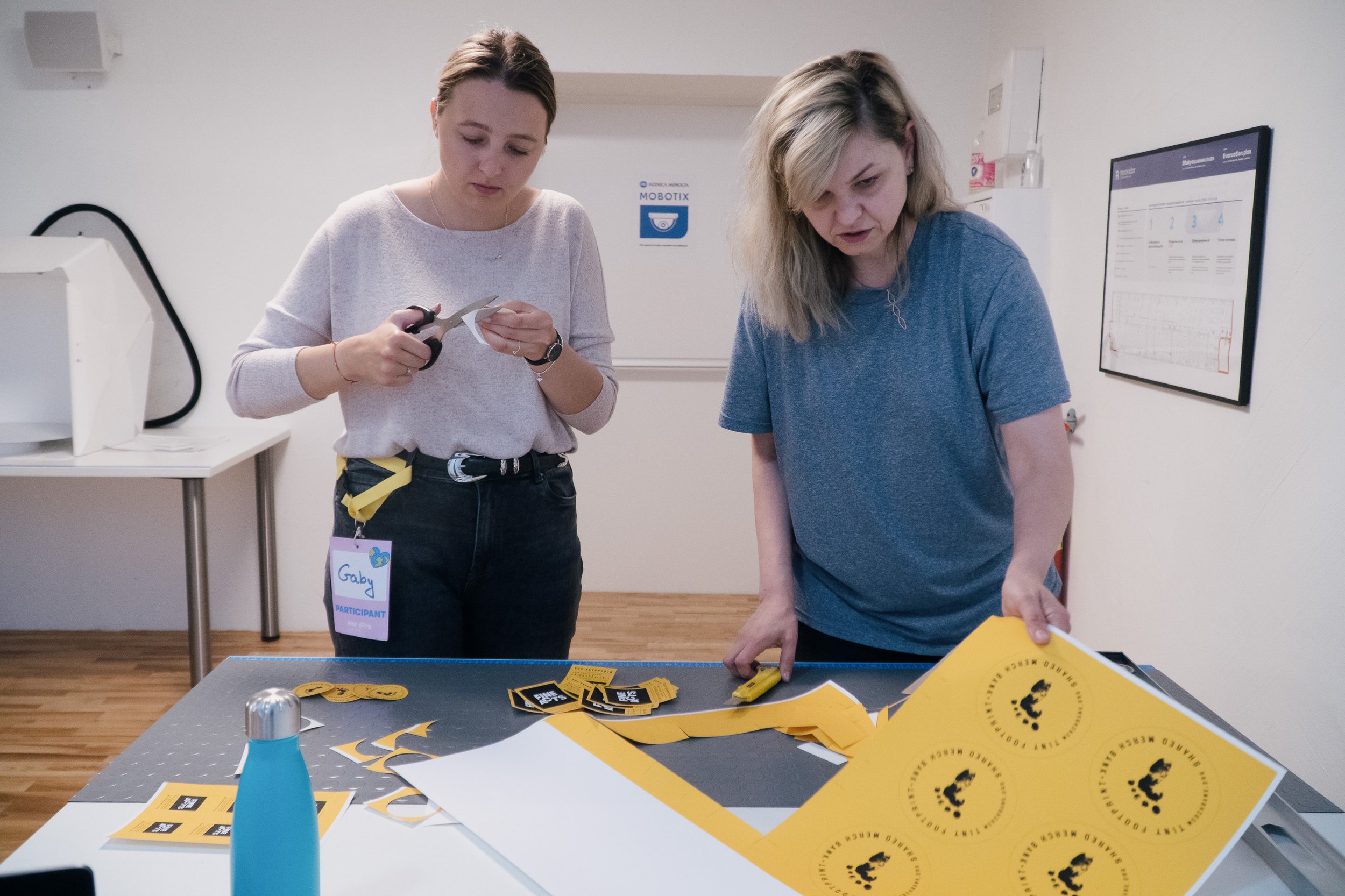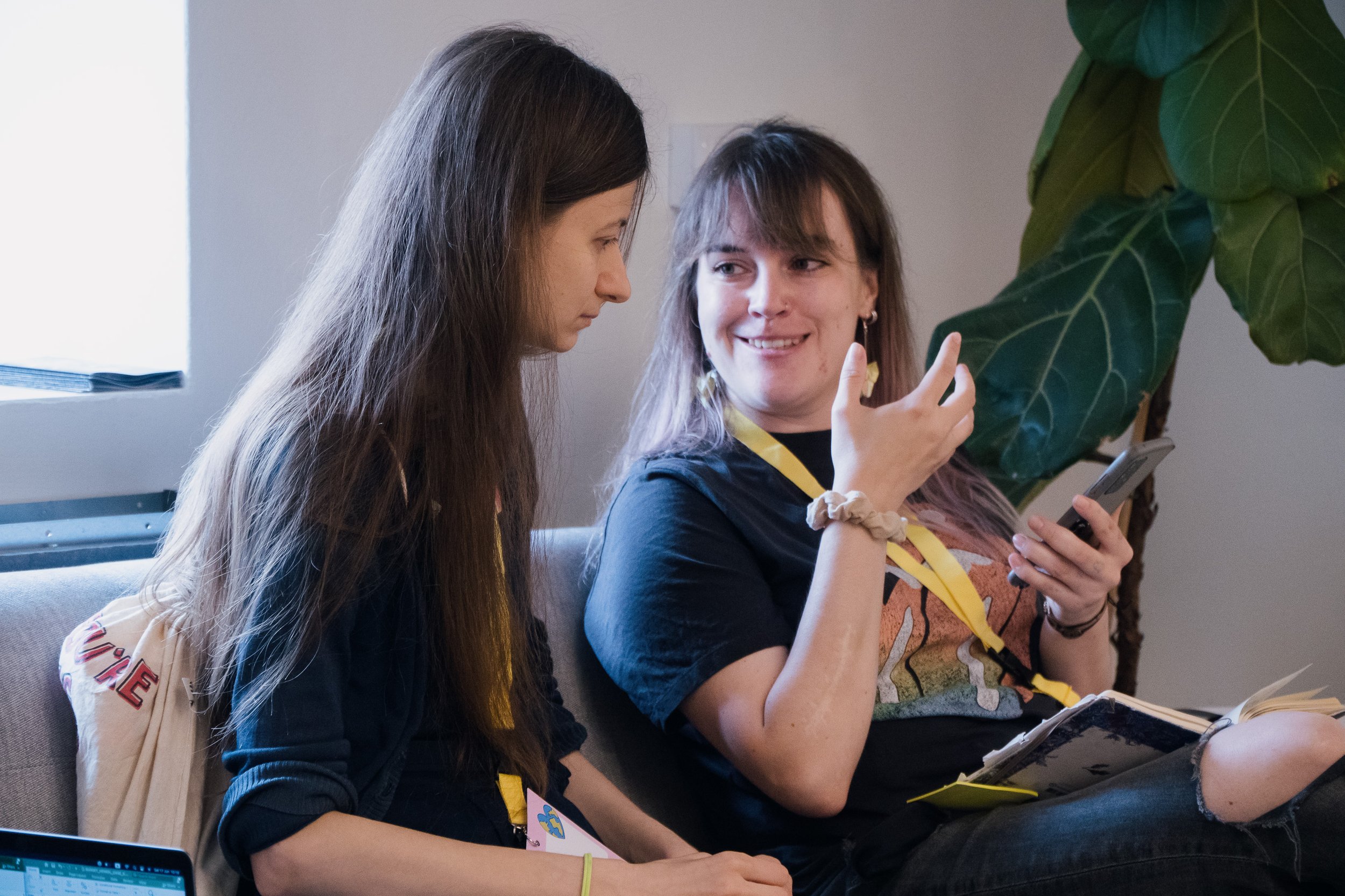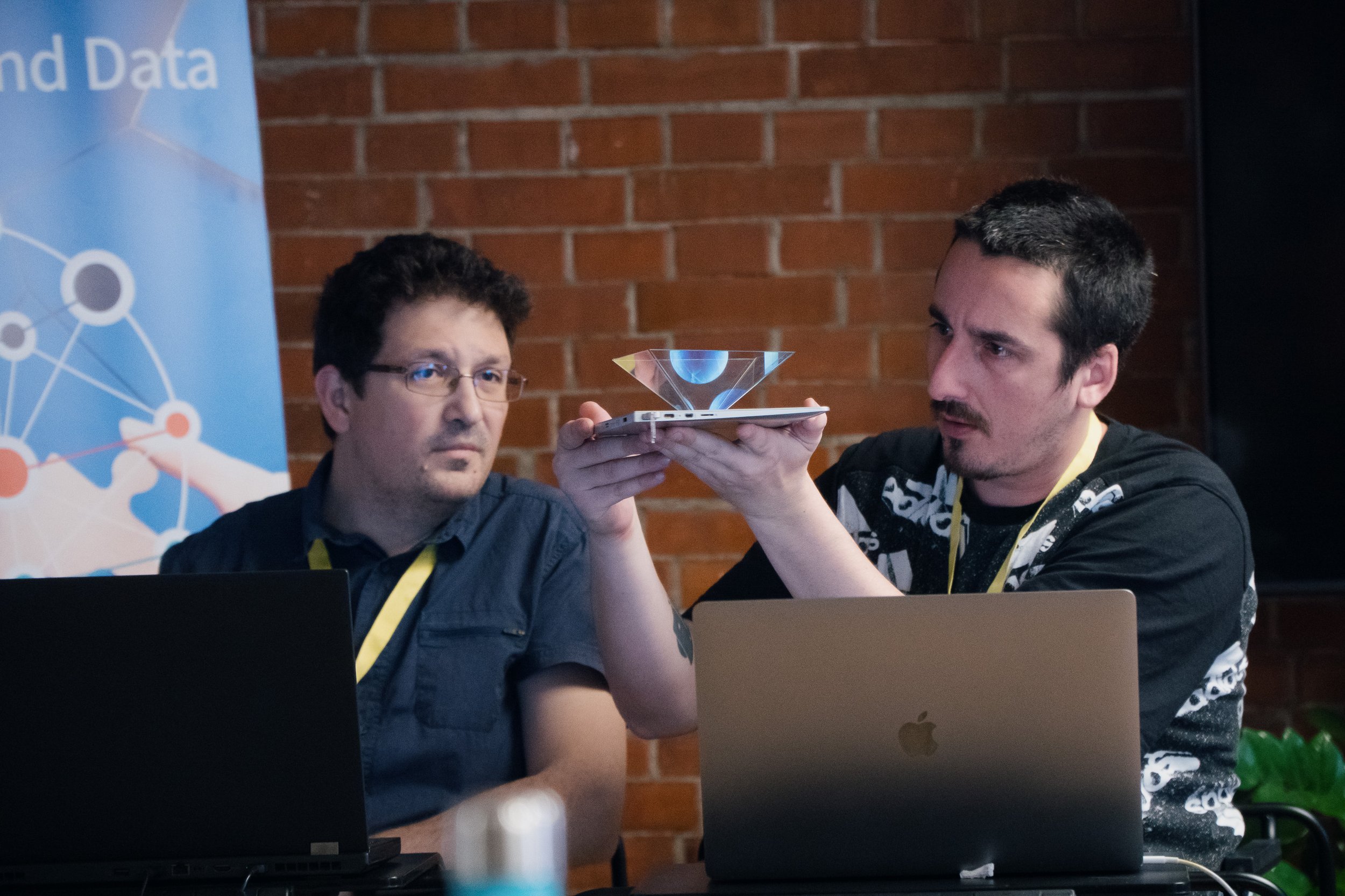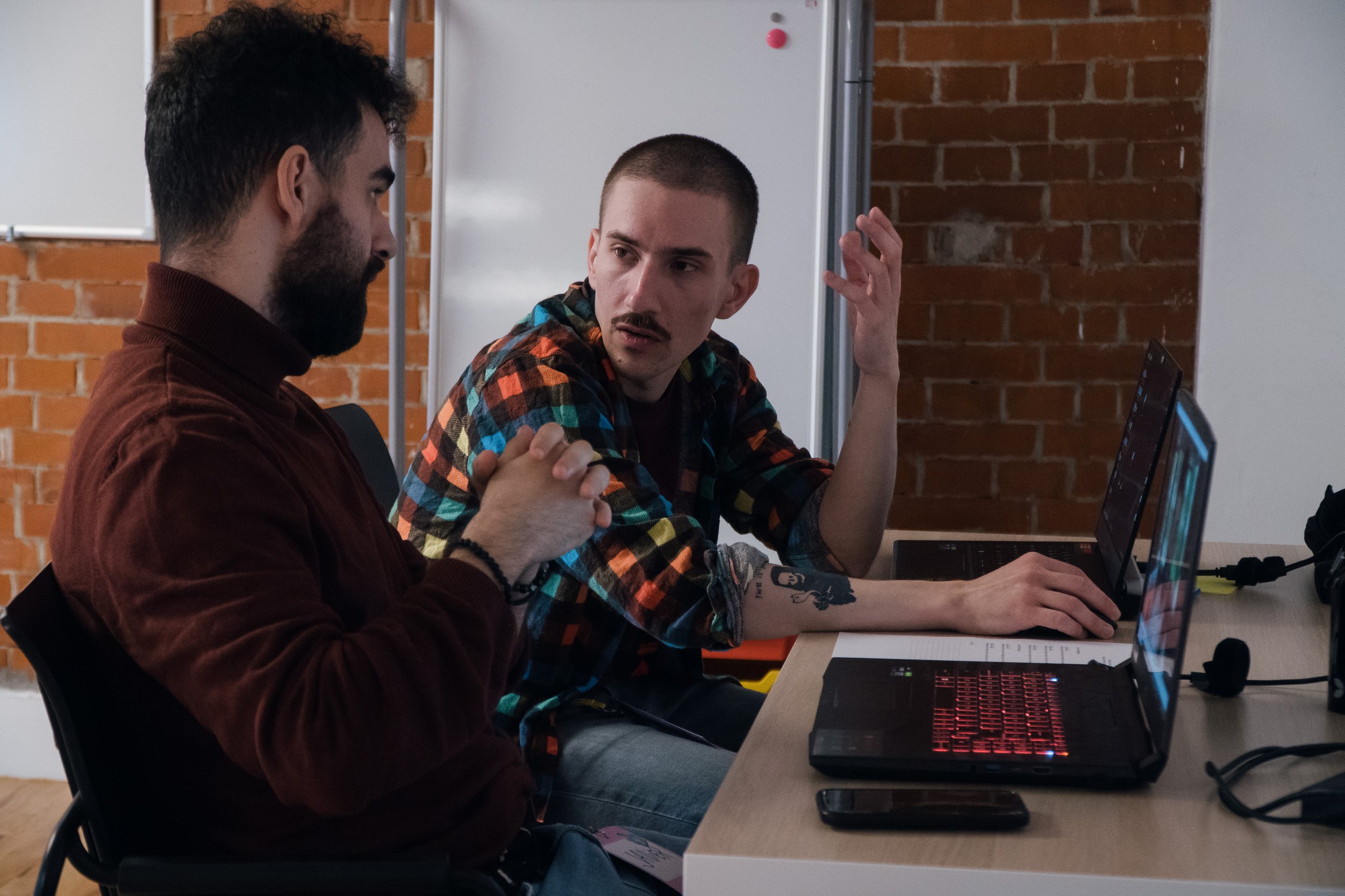Climate change – the greatest challenge of our time, with rising temperatures and ecosystem degradation threatening life on Earth – was at the heart of our latest Fine Acts Labs edition. `
After an unavoidable three-year pandemic break, we brought back our renowned Labs series in June, with two simultaneous events, an in-person one and an online one – both focusing on climate change and climate justice.
Labs is our original format where teams of artists and technologists work together over a weekend to prototype ideas that raise awareness or provide solutions for a specific problem. The ideas should merge the power of art to translate pressing issues into a language that makes people care and act, and technology, a tool that fuels solutions, participation and experiences. A jury then awards one idea with a grant for further development.
And the best part? We play! Labs is an example of our concept of playtivism – which refers to the process of incorporating play and experimentation in activism. We see multidisciplinary, creative play as essential to human rights and environmental work – as play sparks better ideas, and can be an antidote to the high levels of burnout and depression amongst activists.
The live international edition featured 7 brilliant creative duos from 6 countries. It was hosted at Resonator, a unique creative tech hub in Sofia, Bulgaria, with all sorts of laboratories at its disposal – from electronics and sound to XR and fabrication.
The seven teams were strategically paired prior to the event. As intense ideation work kicked off after a short series of practical lightning sessions on the topic, examples of socially-engaged artworks, teamwork, productive brainstorming and more, many participants found themselves genuinely clicking with their partners. Energies matched, skills and interests complemented and enhanced collaboration. “It has been enlightening to see how many people of different backgrounds can come together, and to learn that I myself can easily collaborate so freely with someone I don’t know,” said one of the participants Zhelev Atanasov. “The biggest surprise is my partner – what a great match! We’ve been able to fit together perfectly,” said Lucian E. Matei. “In the right circumstances you can accomplish good results even with people you just met,” said Boril Obreshkov.
Over the course of the Labs, the creative teams of artists and techies worked tirelessly to bring to life ideas which addressed the climate crisis with and through hope. Ideas bounced, formed and disintegrated to be reshaped and reformed anew. The teams tapped into a diverse pool of mentors – from prominent climate activists to renowned artists and experienced techies. Clear guidance and support were provided through structured mentoring sessions, as well as access to the mentors at all times. On the second day the mentors shared that they observed immense progress after seeing where each team had landed in the final stretch before pitching in front of the jury.
The atmosphere was electric as imagination ran wild while teams prepared prototypes and presentations. At the end of the intense weekend, teams took to the stage one after the other. It quickly became clear that all participants had gone beyond the shallow waters of practical problem-solving and delved into their own inner worlds to come up with well-rounded complex creative ideas. They were solution-oriented and grounded in science but also deeply rooted in hope and refined to a high conceptual and artistic standard.
The ideas ranged from a shared merch bank tackling the problem of the wasteful swag industry with grace and humour, to a forest memorial park, powered by the community and made out of the wooden scraps found at deforestation sites. From a video game with a time-traveling protagonist set in a dystopian future with the chance to go back in time to reverse climate change, to a gamified interactive installation raising awareness of e-waste and its harmful effects. From a thought-provoking gun-shaped public art installation made from old oil barrels urging viewers to confront climate change head-on, to an interactive hologram of Earth under water, helping us visualize the healing power of collective effort on this planet in the here and now.
The selection process was incredibly hard – but one idea stood out and captured the attention of the jury. After a rigorous deliberation process, the jury awarded Katerina Vaseva and Daniel Haas who showcased It’s Fine – a digital platform and video installation that transforms all the ‘good’ and ‘bad’ parts of humanity into natural landscapes and sounds. Its goal is to create a shared space where we can contemplate what the world without humans would look like, what we stand to lose, what would remain, and who really needs saving. Input images will be sourced from people around the globe, and anyone will be able to upload an image to see it transform. The work’s main message: Nature can live without us, but we can't live without nature.
“My personal hope is that every person realizes that every small action helps. Big change doesn’t come in a day and it requires all of us to contribute. I hope to see more people do their part in solving the climate crisis.”
The winning duo received a grant of 5 000 USD to bring their vision to life by November, in collaboration with Fine Acts. But Katerina and Daniel are not the only ones who will receive ongoing support. All other teams looking to implement their ideas will receive mentoring and organizational support from us and our vast network.
This latest Labs edition was a powerful reminder of the pivotal role of interdisciplinary work in solving large-scale social and environmental issues. The diverse array of perspectives of artists, activists and technologists allowed teams to develop more complex ideas for immediate solutions. And through a weekend’s worth of collaboration and introspection a deep sense of hope appeared in all of us present. That change is possible.
Stay tuned for our article on our second Labs!









